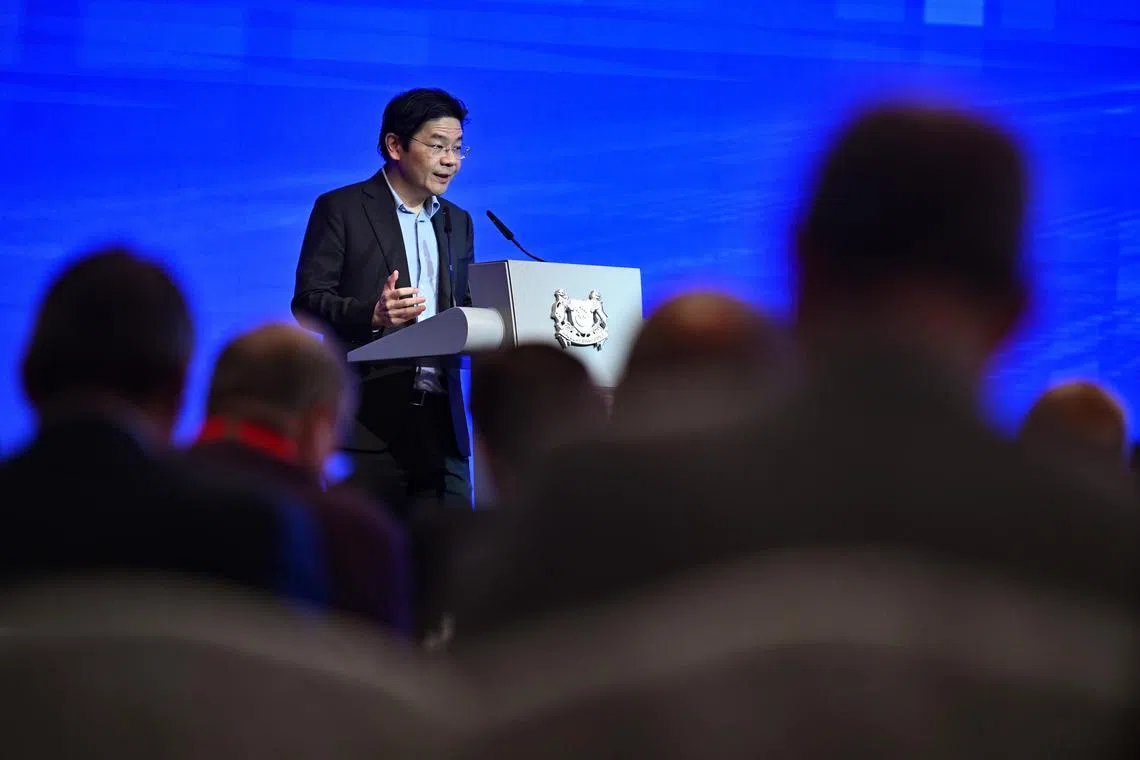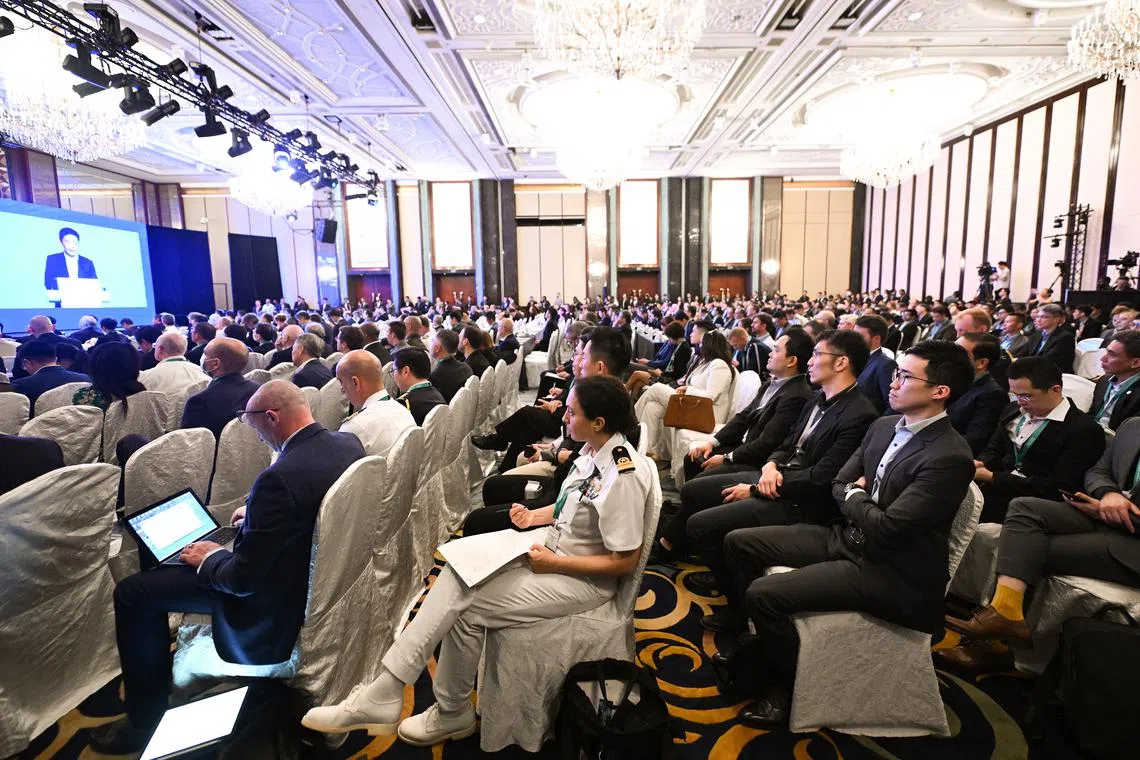Military has to work with commercial firms to tap latest tech while maintaining security: DPM Wong
Sign up now: Get ST's newsletters delivered to your inbox

Mr Wong said that some commercial offerings today are already superior to existing traditional and bespoke defence solution.
ST PHOTO: LIM YAOHUI
SINGAPORE – Game-changing technologies like artificial intelligence (AI) are potentially deadly weapons that can alter the global security landscape, and governments worldwide will have to step up to help guide their development, said Deputy Prime Minister Lawrence Wong.
With security considerations coming to the forefront in the light of rising superpower tensions, and cutting-edge technology increasingly being driven by the private sector rather than governments, Mr Wong spoke about the urgent need to harness their development.
“As commercial enterprises continue to make technology breakthroughs in various fields, how can we guide their development to ensure these new technologies contribute to our collective security, rather than undermine it?”, said Mr Wong, speaking to participants at the fourth Singapore Defence Technology Summit at Shangri-La Hotel on Thursday.
The answers could not be left to commercial enterprises alone, said DPM Wong, who is also Finance Minister, even though the private sector was leading technological breakthroughs, and the line between military and civilian technology had increasingly become blurred.
“This has serious implications for defence establishments all over the world,” he added. Militaries and countries would have to work with companies to ensure that these technologies were tapped for their benefits, while their more dangerous aspects were controlled.
The new landscape offered both opportunities and challenges, said Mr Wong, who sketched out how quickly it had changed. Commercial offerings in the fields of 5G and low-earth orbit satellites
Cloud computing infrastructure allows militaries to store and process large quantities of data securely.
Beyond the digital domain, commercial technologies will almost certainly play a larger role in the delivery of lethal force as well, said Mr Wong. An example of this is how the Ukrainian military has repurposed off-the-shelf drones meant for hobbyist aerial photography to attack Russian tanks with bombs.
An immediate issue that needed to be addressed was the rapidly advancing AI, he added.
“We can imagine a future powered by AI – improving all aspects of life, and enabling breakthroughs in different fields from medicine to transport.
“But AI is potentially also a weapon – it can accelerate the future of autonomous warfare, enabling weapons that are more precise, cheaper, faster, and even with the capabilities to learn, making their missions virtually unstoppable,” he added.
Basically, the question was how the world can get the best of AI, while protecting itself against the worst consequences, said Mr Wong.
What was clear was that the burden to answer this should not fall on commercial enterprises alone, but that governments, industry and civil society should work to develop principles and guidelines to develop AI, he said.
Governments have guided the application of nascent technologies before, he said. He cited the way governments had collectively developed international protocols so that nuclear technology that was originally developed for military use could be harnessed to generate civilian energy, without falling into the hands of bad actors.

Participants at the fourth Singapore Defence Technology Summit at Shangri-La Hotel on Thursday.
ST PHOTO: LIM YAOHUI
New technologies will also unleash an expanding range of asymmetric threats, as malicious actors and criminal groups look to exploit vulnerabilities inherent in computer systems to launch ransomware and cyber attacks, sometimes against major gas lines, food supply chains and hospital systems.
Asia emerged as the most targeted region by cyber attacks, according to analyses such as IBM’s Security X-Force Threat Intelligence Index 2022. It found that the region received one in four recorded attacks throughout the year.
Earlier in 2023, cyber security firm Group-IB discovered a hacking campaign that had breached seven high-profile targets in South-east Asia and Europe – including government and military agencies.
The group, dubbed Dark Pink, was found to have compromised the defences of military branches in the Philippines and Malaysia. The Cambodian and Indonesian governments were also compromised in the campaign.
“These emerging cyber threats are global in nature, and if we want to mount effective responses and stay ahead of these adversaries, global cooperation is needed,” stressed Mr Wong.
He called on countries to improve collective resilience to such threats by working together to coordinate policy responses, share information and conduct joint operations. An example of such collaboration is the Asean-Singapore Cybersecurity Centre of Excellence, which provides training and information among its members.
“We may all have different background and interests, but I believe we all share the common desire to harness technology to benefit our countries and our peoples,” he said.


